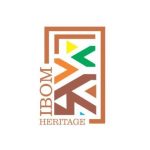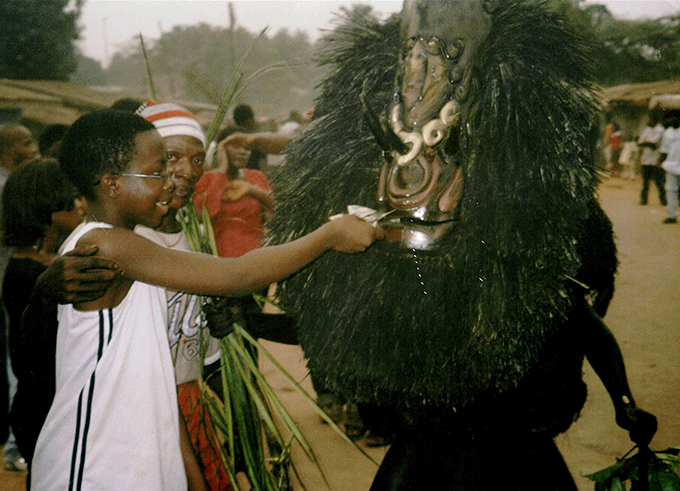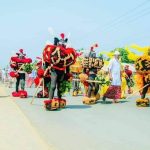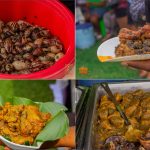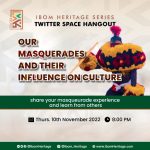Ekpo society is a large one characterized by many arms. It is even safe to consider them as different types although they are all ‘Ekpo’. We had published other articles on the Ekpo society. Please click here and here.
Ekpo nyòhó
Costumed in a manner to scare women and children once they were seen, Ekpo nyòhó is mainly found deep in the core Ibibio area of Uyo -Ibesikpo – Nsit Ubium – Etinan axis. When the masquerade appears, it is dressed in black furry raffia that gives it a round amorphous shape. With a terrifying face, a sharp machete in hand and some green symbolic leaves, this masquerade is a handful.
This arm was responsible for orderliness and made sure that laws made were carried out on all administrative levels in Ibibio Land.
Ekpo Ndòk
Ibibio people considered this particular Ekpo as the actual ghost. It came out at night and majorly to penalize crimes committed in secrecy. It was considered to be fair and impartial, and hovered around the community unseen.
Ekpo Eko’on
This arm of the Ekpo society had its operations between June and August yearly and was known for bringing calm on the community. Whenever Ekpo Eko’on was out, the community will be quiet as everyone will be on automatic holidays.
Traders were not required to come late from their businesses, nor farmers to return late from their farms. In riverine areas, the same rule applied to fishermen. And then in colonial days when the civil service was birthed, workers knew better than to be found outdoors when the Ekpo was out.
Eka Ekpo
This was considered the mother of the Ekpo masquerade. It had a lot of respect accorded it. Before it emerged for a march, a display, a timeout for whatever purpose, every member of the community was informed. In some communities, you may be allowed to view it from your homes. In others, no one was to see it but the initiates.
Ekpo ntok-ayen
This was the teen Ekpo, worn by young people. It was strictly for entertainment and could be on display at any time or season, but especially during yuletide when travelers returned home to spend time with family. Its costume is usually of white painted raffia and the mask would be friendly, handsome, playful, anything but scary.
Get the book ‘Ibibio Nation: History & Culture’ by Oto-Obong Uwah via this link.
Written by Brownson Nseime, from Jabborro PR
Keywords: Ekpo society types, arms | classes | Ibibio
